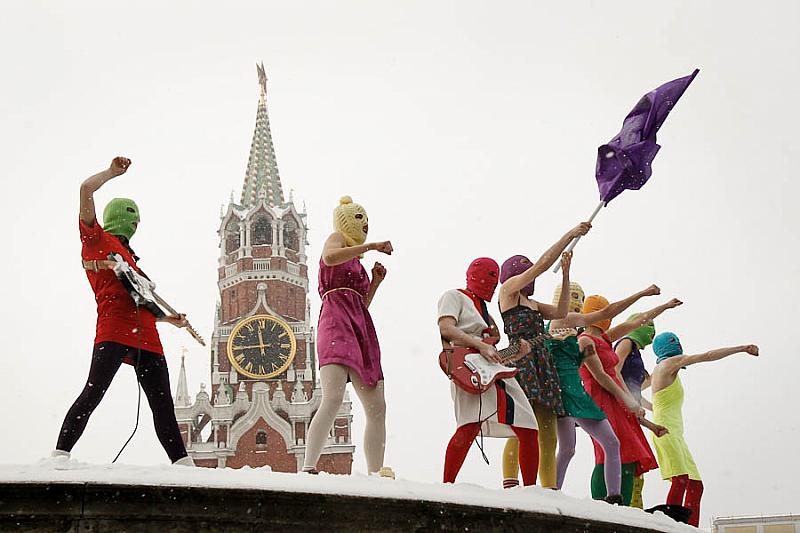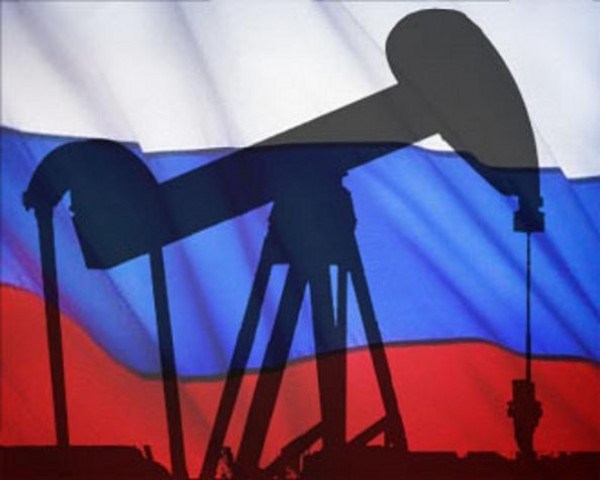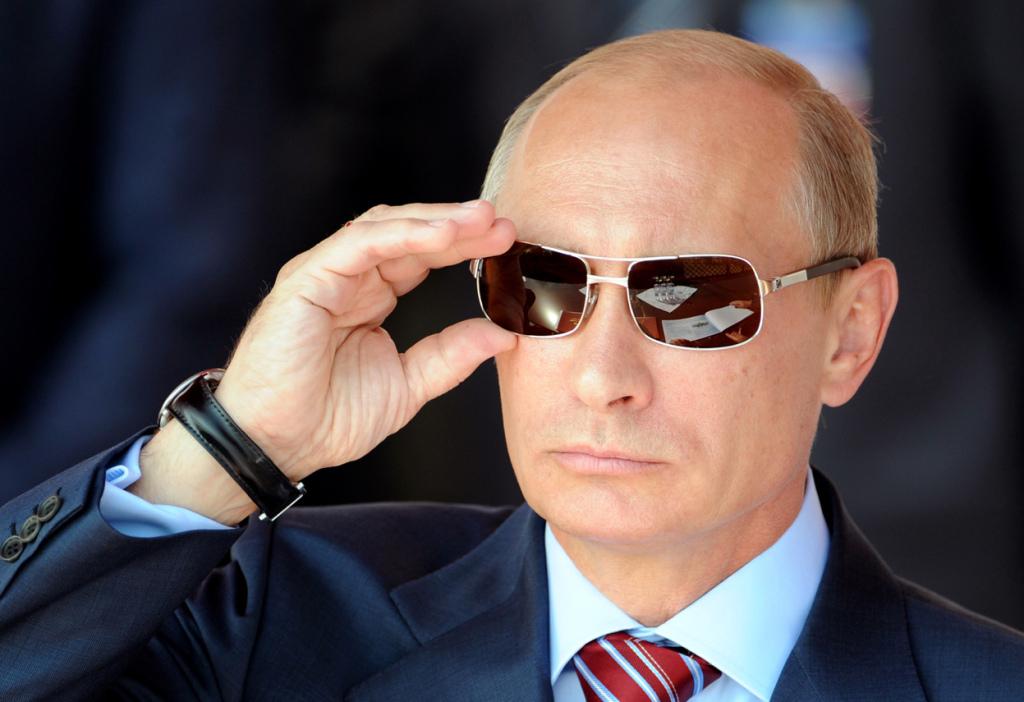
This past week crystalized three critical realities about today’s Russia. We witnessed the most heavily militarized Olympics in history as fears of terrorism, combined with President Putin’s desire to cement his and Russia’s standing in the world, brought about a near Soviet-style show of force. Acts of violent repression occurred throughout the country – and at the Olympics themselves (mostly ignored in favor of more pleasant discussion topics - say, ice dancing). We learned that despite Russia’s concerted efforts to project an image of strength and stability, its own commodity-driven economy may be teetering on the edge of collapse. And then, over the weekend, we watched as the neighboring government in Ukraine – even despite its strong alliance with Putin - was overthrown by a sudden popular uprising.
So whether you’re interested in Russia because of its geopolitical importance, for humanitarian reasons or as an investor, last week provided a wealth of new information. To begin, let’s take a look at the following New York Times op-ed penned by the anti-Putin political activist and member of the all-female (and, until recently, imprisoned) punk band, Pussy Riot, Maria Alyokhina, who offered the following astute observations:

-
As to her personal experiences at the Olympics: “This week in Sochi, Nadezhda Tolokonnikova, another member of Pussy Riot, and I were detained three times and then, on Wednesday, assaulted by Cossack militiamen with whips and pepper spray.”
- As to freedom of expression: “The police arrested a group that had gathered in Manezhnaya Square, in Moscow. The arrests came immediately after about 60 people unfurled umbrellas in support of Russia’s only independent television channel, Dozhd.” (She explains that the channel had recently been shut down by the government as “unpatriotic”)
- As to Russia’s increasing repression of its gay population: “On Feb. 7, the opening day of the Olympics, several people walked out onto Red Square in Moscow. When they attempted to sing the Russian national anthem, all were arrested and taken to the nearest police station. ‘We were holding small rainbow flags to show support for the L.G.B.T. community,’ wrote my protester friend, who found herself taken into custody for the first time in her life.”
- As to Putin’s priorities (economic and otherwise): “More than $50 billion was sunk into the construction of Olympic venues — giant, meaningless, alien objects whose purpose is to feed the ego of the country’s president, elevating him to the rank of a pharaoh or emperor. The host city of Sochi has essentially become a closed military facility. Access to the city is restricted and will remain so for another month after the Olympics end.”
Meanwhile, Russia’s symptoms of long-term economic distress grew dramatically more serious. According to Reuters: “A dramatic slump in capital investment by Russian companies in January pointed on Wednesday to Russia’s ailing economy continuing to deteriorate fast. There was no sign in data of a boost from preparations for the Sochi Olympics as investment fell by 7 percent compared with a year earlier, a huge undershoot compared with analysts’ forecast in a Reuters poll of a 0.5 percent rise. “It’s terrible. It’s like in 2009,” said Natalia Orlova, an economist at Alfa Bank, referring to the year when Russia’s economy shrank by 8 percent as the global financial crunch wreaked havoc on corporate finances. The unexpected plunge in investment last month comes after a year of stagnation. It fell by 0.3 percent in 2013, according to official estimates – a major factor behind lackluster economic growth of 1.3 percent last year. The investment malaise underscores the poor state of Russia’s business climate and boosts the argument of those calling for structural reforms to diversify an economy that is too dependent on stagnant natural resource sectors.” (emphasis added)

In fact, most economic observers now agree that Russia has reached a virtual breaking point – desperately clinging to the price of oil as practically its only remaining economic life-line. Hence, to maintain power, Putin will literally need to do ANYTHING AND EVERYTHING to ensure that price remains high. [See, for example, this 2012 New York Times article regarding the multiple political repercussions that could likely be spawned by Russia’s economic crisis] Clearly, the risks now are significantly greater now than they were in 2012.

Then we had Ukraine where a contest of wills unfolded on a scale vastly larger than anything seen at the Olympics. In a single week, peaceful protests in Kiev spread throughout much of western Ukraine, at times grew violent, and ultimately saw the nation’s President, Viktor Yanukovych, flee the capital while his imprisoned long-time rival and former Prime Minister, Yulia Tymoshenko, was set free by Parliament. And this occurred despite Putin’s vast economic and military support for the Yanukovych regime.
So where does this leave us and how should we be thinking about the future of Russia and its place on the world stage? Although most of us probably started off 2014 assuming China would be America’s largest foreign policy challenge (and, without doubt, it remains formidable), we now need to recognize that a profoundly dangerous combination of trends may make Russia the year’s most relevant player when it comes to everything from global economic recovery to geopolitical stability.

The nation is led by an egomaniacal former head of the KGB who shows virtually no interest in compromise. He has already demonstrated a willingness to use extreme measures – even during the Olympics while the whole world was watching. What he chooses to do after the international press corps departs could have a massively negative impact both on Russia and its neighboring states.

Additionally, because of Russia’s enormous global heft, the effects of Putin’s decisions will quickly reverberate beyond its borders. If maintaining the price of oil happens to require increased instability in the Middle East, expect not only a further fanning of the flames in Syria but additional assistance to Iran. Should direct threats to Putin’s power emerge, be ready for an even more extensive promotion of Russian nationalism, military intervention in any neighboring country that attempts to align itself with Europe (See e.g., Georgia in 2008…) and a continuing use of the Russian Orthodox Church’s most conservative elements to keep the population in line.
Finally – taken together - all of this could easily lead to a flight of foreign capital, greatly expanded tensions with the United States, higher fuel costs and a slowed global economic recovery. Therefore, whether you’re on Wall Street, Capitol Hill or Main Street USA, Russia has suddenly become an extremely personal issue . . .
I tend to think Ms. Alyokhina sums up the broader narrative ALMOST perfectly: “This story is bigger than the Olympic venues, bigger even than the Olympics. This is a story about the real Russia of today. It exists, and the price of its existence is prison sentences for innocent people who speak out.”
As noted earlier, she omits only one key point: What Ms. Alyokhina calls, “the price of its existence,” will also be experienced far beyond Russia’s prison walls. Let’s hope our own leadership is paying VERY close attention.


2 Comments
Glenn Fusonie
Wasn’t Mitt Romney that was laughed at during the 2012 election for thinking Russia was still a potential problem for US? Seems more prophetic now.
Aren’t the same people who laughed at Mitt the ones calling our own president’s administrative scandals and intrusions on personal liberties “phony”? Maybe we should take these personal liberty intrusions more seriously.
Brian Morris
http://mutt-r.tumblr.com/post/52717186409/if-you-keep-quiet-you-die-if-you-speak-you-die
Comments are closed.